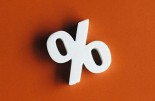M&G: End of ECB buying programme will increase market volatility
M&G: End of ECB buying programme will increase market volatility

You hereby receive a commentary on the ECB decisions from Wolfgang Bauer, Bond Specialist at asset manager M&G. Bauer argues that the decision to end the purchase programme could cause additional market volatility.
The ECB paves the way for a 0,25% increase in interest rates at their next meeting and a sustained path of further hikes thereafter. Keeping interest rates at their historic lows for any longer, against the backdrop of rampant inflation in Europe, would have been very hard to justify. Ultimately, the ECB’s credibility is on the line. The central bank is already attracting criticism for not having started to normalise monetary policy much earlier.
That’s easily said with the benefit of hindsight, of course. However, due to the complex economic dynamics throughout the pandemic, for which there was no blueprint to follow, it’s probably wise to cut the ECB some slack and refrain from overly harsh criticism.
While the ECB’s comments about future rate hikes dominate the headlines today, one should not underestimate the significance of the impending end of net asset purchases. Throughout the past years, asset purchase programmes have been the ECB’s primary tool to bolster sentiment and thus reinstate financial market stability in moments of crisis.
Without net purchases, markets operate without a safety net, which could lead to periods of heightened volatility going forward. The ECB left the door open with regards to resuming purchases under the pandemic emergency purchase programme (PEPP) in the event of renewed market fallout related to the pandemic.
Considering the inflation backdrop, I reckon the bar is very high to backtrack from the asset purchase exit, though. In my view, it would need a major deterioration of economic fundamentals and a precipitous market correction to put asset purchases back on the agenda. So, in a way, the central bank put is far out-of-the-money.








